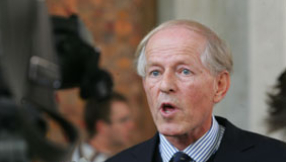
If we feel as though our prayers are lacking power, we can struggle to have faith they're "working" and even end up wondering if God can actually hear us. Throughout his life, Jesus spoke about and demonstrated the form that our prayers should take, when we should pray and why. Here we look at the some of the whats, whens and hows of prayer as inspired by Jesus' teaching.
What to say
Do you ever get lost for words when you want to pray? We can feel like finding the "right words" is an obstacle to talking honestly and openly with God. If we're ever stuck with wording our requests, praise or repentance, we can look to Jesus' teaching in The Lord's Prayer in Luke 11:2-4.
Jesus' prayers to God in the Garden of Gethsemane can also be used as inspiration for how to speak with God. The language he uses is simple and direct, an approach that he also encouraged his disciples to take prior to this moment. "And when you pray, do not keep on babbling like pagans, for they think they will be heard because of their many words. Do not be like them, for your Father knows what you need before you ask him," (Matthew 6:7-8).
When to do it
Jesus taught his disciples that they should "always pray and not give up," (Luke 18). Scheduling in set time for prayer can help us make sure that it remains part of our routine but we shouldn't feel that prayer is restricted to certain times or specific situations. We can become discouraged if we feel as though God isn't answering our prayers, and avoid it altogether but Jesus calls on us to be persistent with our prayer.
We can find more guidance on when to pray in relation to specific circumstances from Jesus' own examples. Before his death, Jesus prayed in the Garden of Gethsemane, (Matthew 26:36-46). He knew that he was about to give his life and said to God: "My Father, if it is possible, may this cup be taken from me. Yet not as I will, but as you will," (Matthew 26:39). In the same way, we should go to God before we take on a spiritual challenge, especially if we feel that we're struggling with it and need extra encouragement.
How to think about it
Jesus told his disciples to have faith (Mark 11:22) and that "whatever you ask for in prayer, believe that you have received it, and it will be yours," (Mark 11:24). We act as if we have no faith in God's greatness if we always go into prayer doubting that he will intervene in a situation that we bring to him. It's impossible for us to put conditions around God's will so we should pray expectantly. What we learn from Jesus is that when we speak with God we shouldn't hold back or hesitate (Luke 11:9-13).













